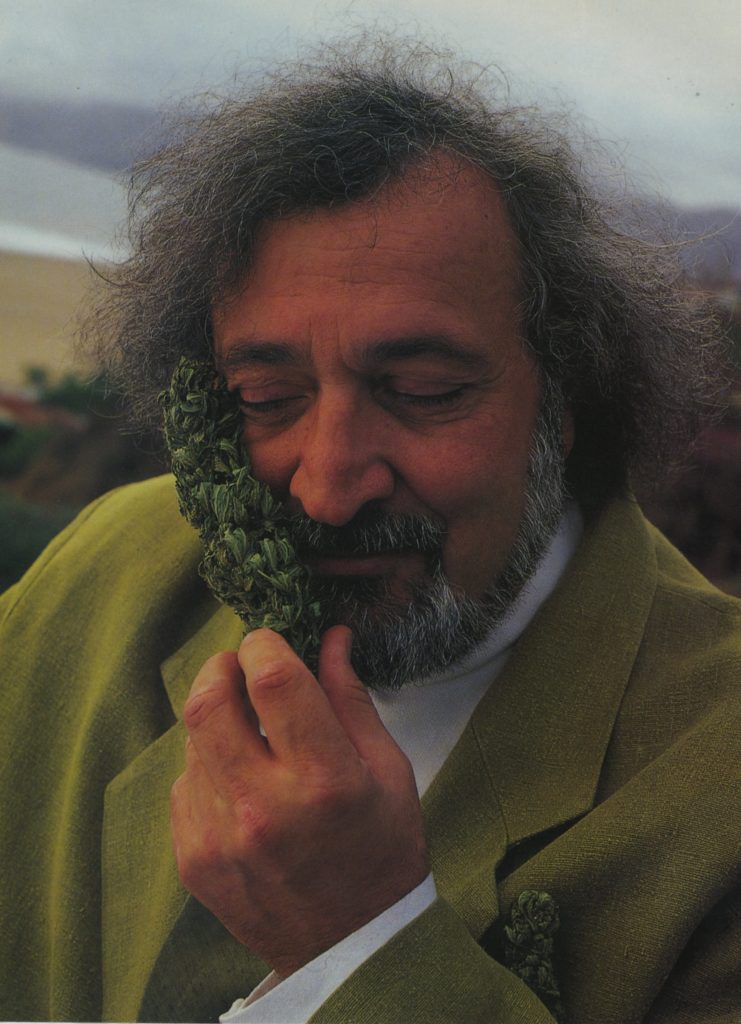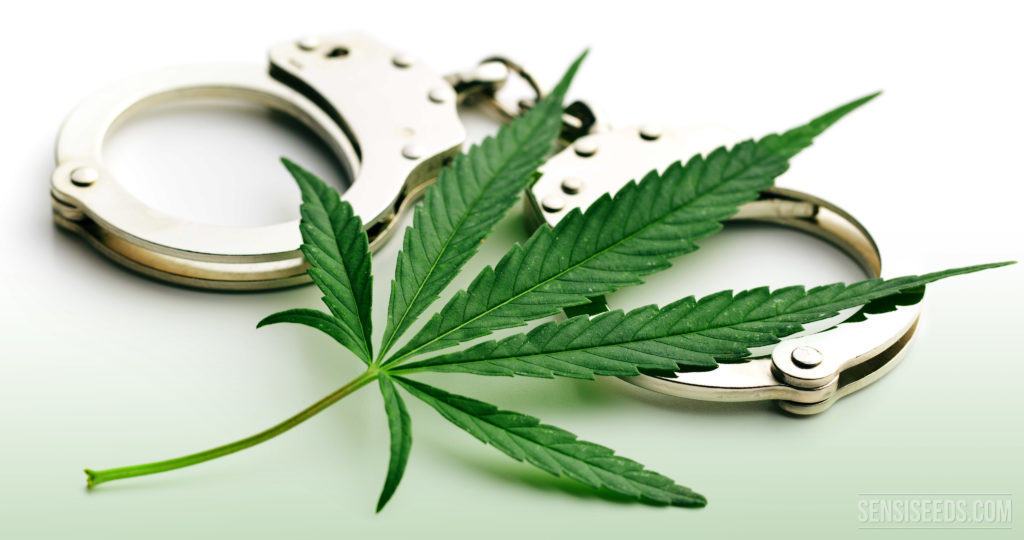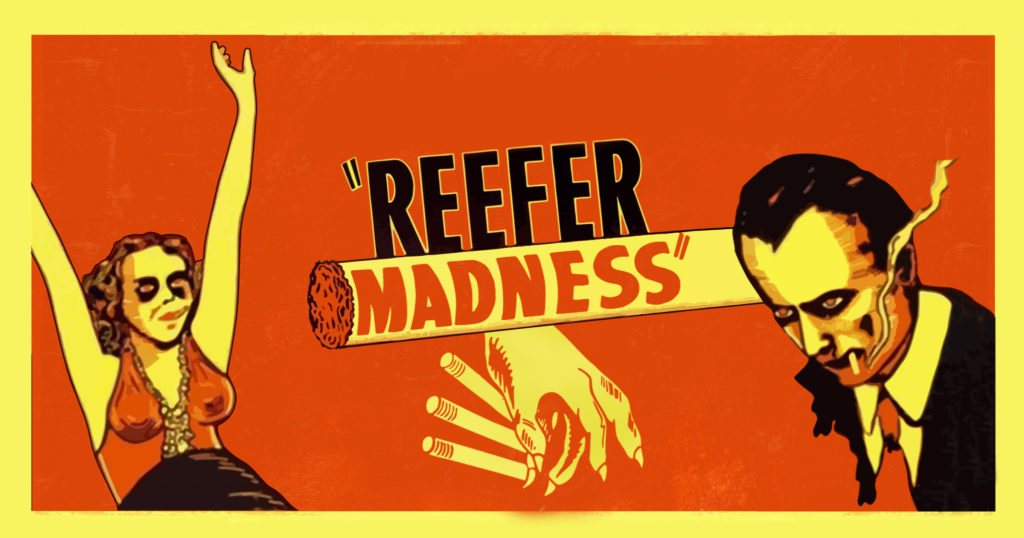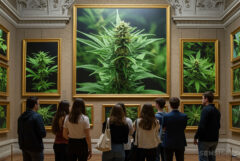The rumours about hidden forces of darkness lurking behind the worldwide ban on cannabis just refuse to die. There is no proof at all of any worldwide cannabis conspiracy. The driving force behind the ban is latent European and North American racism, not economic interests as maintained, for example, by the cannabis activist Jack Herer.
In order to justify and maintain the ban on cannabis, many untruths have been propagated over the last 100 years which are now gradually being exposed one by one. People who have become aware of this tissue of lies through their personal experiences mistrust even the most serious representatives of the political world or the media, whenever the topic hits the political agenda.
As there are few rational, logical reasons for the ongoing ban, and as the prohibition is based on an admittedly unusual series of events, some people suspect there is a conspiracy of large companies and politicians or other interest groups behind the ban.
No Facts
Like some other conspiracy theories such as the claims of Nazi flying saucers in the Arctic, the hollow earth theory or the American earthquake machine in Japan, the worldwide cannabis conspiracy has no basis in fact.
The conspiracy theories surrounding cannabis all arrive at the same point as most of these obscure chains of logic: A minority – and you can choose from rich people, poor people, different religions, liberals, politicians, political parties, gays, lesbians or pro-abortionists – have plotted against the interests of humanity. Anyone who believes any different is living in a pretend world and is being manipulated without realising it.
The ban on cannabis can be seen as one of the major mistakes of the last century, but despite what Jack Herer claims in his book “The Emperor Wears No Clothes” there is no evidence at all to back up a cannabis conspiracy.
Demystifying the Jack Herer cannabis conspiracy theory

According to Herer, big American corporations like DuPont or the media mogul William R. Hearst helped to push the cannabis ban for economic reasons. Dr Dale Gieringer, who is fighting for the legalisation of cannabis on the board of NORML, demystified Herer’s conspiracy theory of secret agreements between American big business and politicians, back in 2008.
Unfortunately some of Herer’s dubious claims are still regarded as being partly true. Dr Gieringer checked Herer’s sources with a critical eye, and also pointed out the real, racist motivation behind the worldwide cannabis prohibition.
“Herer, a rather antagonistic former vendor of cannabis pipes, deserves plenty of recognition for his cannabis related activism. In the late 1980s he was a committed grassroots agitator for the legalisation of cannabis, during what was probably the period of greatest hatred of cannabis in recent history… Unfortunately in this specific case he is on completely the wrong track. The evidence for a “hemp conspiracy” simply does not stack up. It is far more likely that marijuana was banned for racist reasons based on a feeling of cultural superiority.”
Gieringer quotes a large number of newspaper articles from the 1930s and 1940s, which support the mainly racist attitude of the anti-cannabis campaign. He demonstrates convincingly and logically that national and international political interests were behind the ban.
Harry J. Anslinger, who went down in history as the first “drug czar”, confirms Gieringer’s hypothesis. In his autobiography “The Murderers” and in various interviews, he has admitted that his reefer madness campaign helped to serve the political interests of the extreme right.
Cannabis prohibition – with hindsight
With support from South Africa and Turkey, Egypt submitted a request in 1925 to the Opium Conference in Geneva to include cannabis in the list of controlled substances. The German author Tilmann Holzer explains in his book “Birth of Drug Policy in the Spirit of Eugenics”, that at that time cannabis was far too economically insignificant to become the subject of an international conspiracy.
Egypt and South Africa had racially motivated reasons for getting cannabis banned at international level as well, as it had been banned at national level already in both these countries. The German Reich initially hesitated before finally agreeing to the ban on “Indian hemp” only in return for the right to continue exporting German heroin to Egypt for “medicinal” purposes.
When, two years after the Opium Conference, Anslinger started to launch the Reefer Madness campaign, he exploited his white countrymen’s racist attitudes, although other countries had already implemented the ban sooner and more logically. When the US introduced the Marihuana Tax Act in 1935 and cannabis disappeared from the shelves of pharmacies, cannabis had already been banned for a long time in many European countries and their then colonies, in order to control the ethnic minorities and their habits.
Greece had banned cannabis as far back as 1890, almost a quarter of a century before the first international ban came from the Geneva Opium Conference. When orthodox Greeks fled the Ottoman Empire during the war of independence at the start of the 19th century, they brought with them their tradition of smoking hashish to the newly created Greece. Given “the direct threat that it (hemp) poses to society” the hated Ottoman tradition was declared illegal. So once again, neither international nor economic interests were at work here, rather a politico-culturally driven nationalism and the open hatred of everything Turkish won the day.
The Reefer Madness
The Reefer Madness campaign in the US, just like the contemporary bans in other countries, was driven by political, racist and cultural concerns. Economic interests played at best a subordinate role.
With a few exceptions, the free economy nowadays has no real problems with legal cannabis. Faced with the opportunity of a billion dollar market opening up, international companies are already rubbing their hands in glee.
Complex circumstances rather than black and white
In Germany, we know only too well that racism and radical nationalism, or cartels, can be channelled without any need for an international conspiracy. We also know that they can then be mobilised against so-called enemies of the people. The racist motivation rather than the conspiracy theory of the global ban on cannabis, under the disguise of the war on drugs, can be well documented from numerous historical sources.
Cannabis racism is meanwhile still alive and kicking. You only need to cast a glance inside a prison, where ethnic minorities are disproportionately represented. In the UK, the likelihood of black people being searched for cannabis by the police is still eight times higher than for other ethnicities.
Even if the almost century-old history of the ban on cannabis seems to many to be a conspiracy by big pharma companies, and the paper and alcohol industries, the available evidence is less than slim. This focus is reiterated for political reasons, and an economic anti-cannabis lobby has so far never been organised successfully, not even in the US. Since the oil boom in the 20th century, hemp has simply no longer been important enough as a commodity.
The idea of a hemp conspiracy also distracts attention from the true, political and racist motives of the war against cannabis. A simple “good guys vs. bad guys scenario” distorts the view of the true underlying factors of prohibition and their complex historical development. It was not the political system but the covert racism of Western society that created this prohibition.
For 100 years, the fear of anything foreign, unknown and new has prevented any evidence-based cannabis policies from arising.












I dare say black people in the UK, and elsewhere are getting stopped by police more in general.
I disagree.
This maybe right for the US, but if you look at the UK for example you’ll find that the alcohol industry have a vested interest in keep cannabis illegal and have been creating negative news stories – all lies to slow down legalization efforts as much as possible.